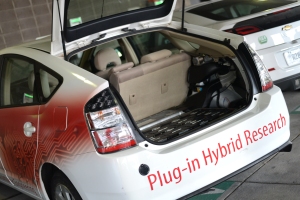By: John S. Usher, Associate Dean
My last blog post basically laid out the idea that engineers play a role in the design of just about every man-made object that we see in our daily lives. I often hear people say that engineers “apply science”, that is, take the findings from scientists like biologists, geologists, chemists, physicists, mathematicians, and more, and apply those scientific concepts to solve problems. In some cases that is true. However, I would argue that it much more commonly goes the other way around. Engineers usually design working systems long before the science is ever understood.
Take for example the steam engine, arguably one of the greatest inventions of all time, and the one which dramatically lead to the Industrial Revolution in the United States. In 1712 the first commercially successful steam engine was developed by Thomas Newcomen. The machine operated, but was crude and very little of the input energy was converted to actual work, with as much as 80% wasted as heat. Much later in the century, James Watt, (yes, that “watt” as in a 60-watt light bulb) worked as instrument maker at the University of Glasgow. He was shown a small model of the Newcomen “atmospheric engine”. Watt studied it and in 1765 realized it could be greatly improved by introducing an external condenser. Watt became famous for his steam engine designs as they became the backbone upon which the American mass production was built.
Yet, the actual science underlying the steam engine, namely “thermodynamics” was virtually non-existent in the late 1700’s. Sadi Carnot, the so called Father of Thermodynamics, published Reflections on the Motive Power of Fire in 1824, nearly a half century after Watt’s findings were well known. The first and second laws of thermodynamics were not known until the late 1850s, based on the works of William Rankine, Rudolf Clausius, and William Thomson (Lord Kelvin). Rankine’s thermodynamic textbook, the first of its kind, was not written until 1859, nearly 100 years after steam engines were commonplace.
Now, I will admit, this is but one example of science trailing engineering, but we can see similar results in many other fields such as electro-magnetism, computer science, chemistry, medicine and more. Look no further than the work of Steve Jobs and Bill Gates and their success with building and selling complex computers while the field of computer science was still forming. Again, we see the engineer “tinkerer” in the garage making an invention work, to improve the quality of life for someone, without the benefit of well-formed scientific principles to help guide the design process.
Fortunately, we are now seeing the lines between science and engineering blur significantly, especially on the cutting edges of additive manufacturing, nanotechnology, genetics and bioinformatics, data analytics and cyber enable discovery. Scientists and engineers now work side by side to unlock the mysteries of mother nature and find ways to apply them to our new technological world. I am enthusiastic and excited about the science and engineering professions and the roles they will play in solving some of the world’s most challenging problems, including, disease, poverty, terrorism, energy, sustainability, and more.
Thanks for reading! If you want to learn more about becoming an engineer, check out our website at http://louisville.edu/speed

